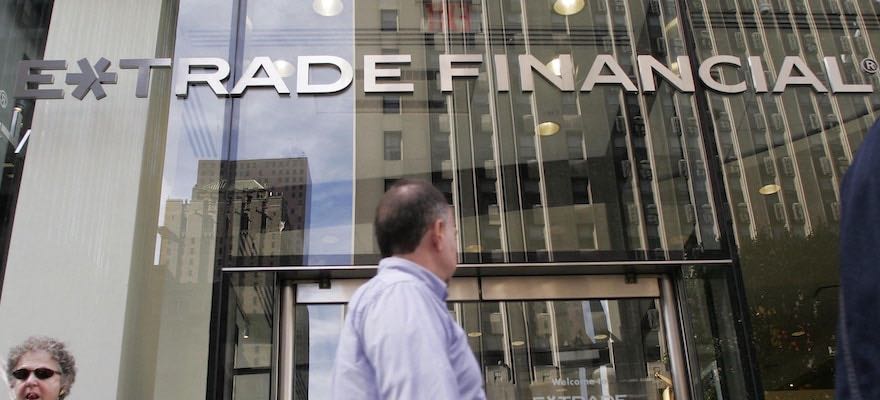E*TRADE Financial Corporation (NASDAQ: ETFC) today revealed that Daily Average Revenue Trades (DARTs) were pointed higher in May 2020, coming in at 252,045 a day, up by 11 percent month-over-month from 227,702 in April 2020.
Over a yearly timetable, the New York-based firm said DARTs of the month prior shot higher by 164 percent year-over-year, compared to 95,471 in May 2019.
In comparison, the number of DARTs at Interactive Brokers was reported at 1.645 million transactions in May 2020, a fall of -4 percent month-over-month from 1.720 million in April and a record 1.96 million in March.
In terms of E*TRADE’s new accounts growth, the group added 116,447 gross new brokerage accounts in May 2020, fewer than the 138,409 accounts it onboarded back in April, but was ten times higher than its counterpart in May 2019. This figure includes 102,403 retail accounts.
In total, this brings the company’s overall accounts to approximately 7.8 million in May 2020, which is higher by two percent compared to 7.7 million in the previous month. This figure also prints an 11 percent increase year-over-year.
Zero-commission craze takes hold
Another area of strength for the month was E*TRADE’s brokerage customer assets which rose to $733 million last month, up 29 percent year-over-year from $568 million in 2019. Meanwhile, the month on month comparison also shows an increase of eight percent from $678 million in April.
Earlier last year, the discount brokerage giant matched the moves of Charles Schwab and TD Ameritrade who eliminated commissions for Online Trading of some stocks and funds
The move by E*TRADE escalated the price war among US major brokers, which was initiated in October after Interactive Brokers introduced IBKR Lite, which provides commission-free, unlimited trades on US stocks and ETFs.
Online stock trading has become much more competitive since Fintech firms like Robinhood emerged to meet the growing demand for cheaper or entirely free investment products.
Elsewhere, E*TRADE’s directors were hit last month with a lawsuit for keeping its proposed $13 billion merger with Morgan Stanley on track without determining if the recent financial results of both entities undermined the deal logic.

















